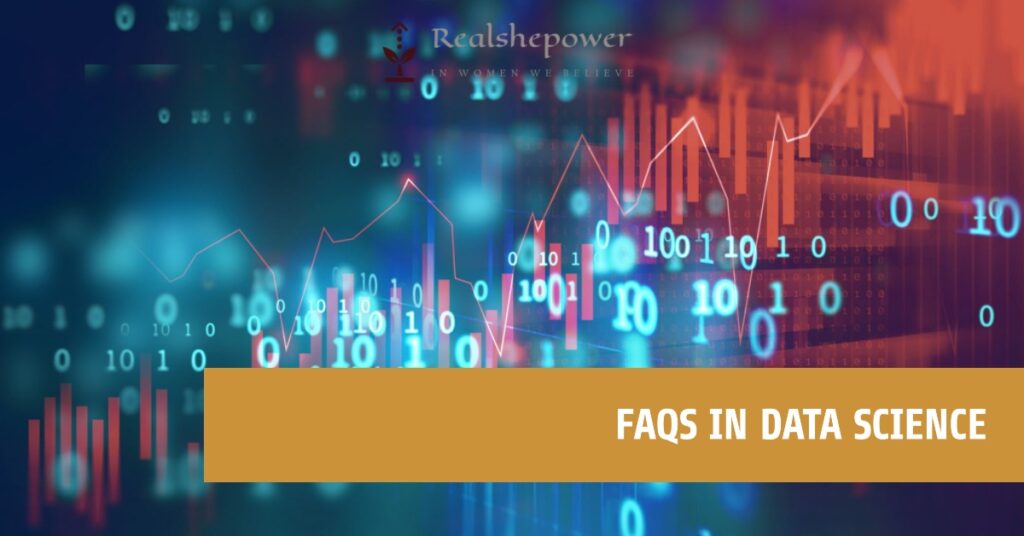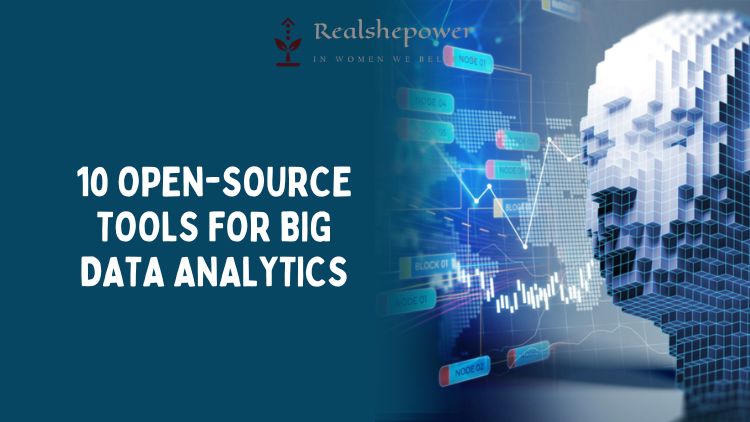How to Become a Data Scientist? Your Path to Mastering the Art of Data Analysis


Introduction: How to Become a Data Scientist?
In today’s data-driven world, organizations across industries rely on data scientists to extract meaningful information from vast amounts of data. Data scientists play a crucial role in uncovering patterns, developing predictive models, and providing valuable insights to drive business decisions. As the demand for skilled data scientists continues to rise, now is the perfect time to dive into this dynamic field. This guide will equip you with the knowledge and tools to become a proficient data scientist and embark on a rewarding career path.
Table of Contents
1. Understanding the Role of a Data Scientist

Before delving into the specifics of becoming a data scientist, it is important to understand the responsibilities and expectations associated with the role. Data scientists are responsible for:
- Collecting, cleaning, and analyzing vast datasets to extract valuable insights
- Developing statistical models and machine learning algorithms
- Visualizing data and communicating findings to stakeholders
- Collaborating with cross-functional teams to address business challenges
- Staying updated with the latest advancements in data science and technology
2. Acquiring the Required Skills
To excel as a data scientist, you need to possess a diverse set of skills. Here are some essential skills you should focus on:
- Strong foundation in mathematics and statistics, including linear algebra, probability, and hypothesis testing
- Proficiency in programming languages such as Python, R, or SQL
- Expertise in data manipulation, analysis, and visualization using tools like Pandas, NumPy, and Matplotlib
- Knowledge of machine learning algorithms, including regression, classification, and clustering
- Familiarity with big data processing frameworks like Hadoop and Spark
- Excellent problem-solving and critical thinking abilities
3. Choosing the Right Educational Path
When it comes to pursuing a career in data science, there are various educational paths you can consider:
- Bachelor’s Degree: A bachelor’s degree in fields like mathematics, statistics, computer science, or engineering can provide a solid foundation in data science concepts.
- Master’s Degree: Pursuing a master’s degree in data science or a related field can offer in-depth knowledge and specialized training.
- Online Courses and Bootcamps: Online platforms and bootcamps offer flexible learning options and hands-on experience with real-world datasets.
- Self-Study: With the abundance of online resources, you can acquire knowledge in data science through self-study. However, this path requires self-discipline and dedication.
4. Gaining Practical Experience
Academic knowledge alone may not be sufficient to thrive in the competitive data science landscape. Gaining practical experience is crucial for honing your skills and demonstrating your expertise. Here’s how you can gain valuable experience:
- Internships: Seek internships or co-op opportunities that allow you to work on real-world data problems under the guidance of experienced professionals.
- Kaggle Competitions: Participate in Kaggle competitions to tackle challenging data science problems and learn from the community.
- Personal Projects: Undertake personal data science projects to explore different datasets, experiment with various techniques, and showcase your abilities.
5. Building a Strong Portfolio

A well-crafted portfolio is essential to showcase your skills and expertise to potential employers. Consider the following tips to create an impressive data science portfolio:
- Highlight your best projects: Select a few projects that demonstrate your problem-solving skills, data analysis techniques, and ability to derive meaningful insights.
- Document your process: Provide clear documentation of the steps you followed, the techniques used, and the insights gained throughout your projects.
- Include visualizations: Incorporate visualizations, such as graphs and charts, to effectively communicate your findings and make your portfolio visually appealing.
- Explain the impact: Describe the practical implications of your projects and how they can contribute to solving real-world problems.
6. Mastering Data Science Tools and Technologies
Data scientists rely on a variety of tools and technologies to analyze and interpret data. Familiarize yourself with the following essential tools:
- Programming Languages: Python and R are widely used programming languages in data science. Learn the syntax, data manipulation techniques, and libraries specific to these languages.
- Data Manipulation Libraries: Libraries like Pandas, NumPy, and SQL are essential for data wrangling, cleaning, and transformation tasks.
- Machine Learning Libraries: Scikit-learn, TensorFlow, and Keras are popular libraries for implementing machine learning algorithms and building predictive models.
- Data Visualization Tools: Master data visualization libraries like Matplotlib, Seaborn, and Tableau to create compelling visual representations of your data.
7. Networking and Professional Development
Networking plays a vital role in the data science community. Consider the following strategies to expand your professional network:
- Attend Data Science Conferences: Participate in conferences, workshops, and meetups to connect with fellow data scientists, gain insights from industry experts, and stay updated with the latest trends.
- Join Online Communities: Engage in online forums, social media groups, and data science communities to collaborate, seek advice, and share your knowledge.
- Collaborate on Open-Source Projects: Contribute to open-source projects on platforms like GitHub to enhance your skills, gain visibility, and build connections with like-minded professionals.
8. Landing Your Dream Job as a Data Scientist
When it comes to securing a job as a data scientist, here are some valuable tips to keep in mind:
- Tailor your resume: Highlight your relevant skills, projects, and experience that align with the specific job requirements.
- Prepare for Interviews: Brush up on essential data science concepts, algorithms, and techniques. Practice solving data science problems and be prepared to explain your approach.
- Showcase your portfolio: During interviews, present your portfolio to demonstrate your practical skills and ability to handle real-world data challenges.
- Continuous Learning: Data science is a rapidly evolving field. Stay updated with the latest tools, techniques, and research papers to showcase your enthusiasm for continuous learning and growth.
9. Continuing Education and Professional Certifications
Continuing education and earning professional certifications can greatly enhance your credibility and open up new opportunities in the field of data science. Consider the following options:
- Online Courses and Specializations: Platforms like Coursera, edX, and Udemy offer a wide range of online courses and specialized programs in data science. These courses often provide hands-on projects and certification upon completion.
- Professional Certifications: Industry-recognized certifications, such as the Certified Data Scientist (CDS) or Microsoft Certified: Azure Data Scientist Associate, validate your skills and expertise to potential employers.
- Advanced Degrees: Pursuing a Ph.D. in data science or a related field can provide a deeper understanding of advanced concepts and research methodologies.
10. Ethical Considerations in Data Science

As a data scientist, it is essential to understand and navigate the ethical implications of working with data. Consider the following factors:
- Privacy and Security: Safeguarding sensitive information and ensuring data privacy are crucial responsibilities. Adhere to ethical guidelines and industry best practices when handling personal or confidential data.
- Bias and Fairness: Be aware of potential biases in data collection, algorithmic decision-making, and model outcomes. Strive to mitigate biases and ensure fairness in your data science projects.
- Transparency and Accountability: Communicate your methods, assumptions, and limitations transparently. Foster open discussions and engage with stakeholders to ensure accountability in your data-driven decisions.
11. Industry Specializations and Applications
Data science finds applications across various industries and domains. Consider specializing in a specific industry or application area to become a sought-after expert. Some industry specializations include:
- Healthcare: Analyzing healthcare data to improve patient outcomes, optimize resource allocation, and develop predictive models for disease diagnosis and treatment.
- Finance: Applying data science techniques to financial data for risk analysis, fraud detection, algorithmic trading, and portfolio optimization.
- Marketing and Advertising: Leveraging data analytics to understand consumer behavior, optimize marketing campaigns, and personalize customer experiences.
- Transportation and Logistics: Using data science to optimize supply chain operations, enhance route planning, and improve transportation efficiency.
- Social Sciences: Applying data analysis to social science research, such as studying human behavior, societal trends, and public policy.
FAQs

Q: Is a master’s degree necessary to become a data scientist?
A: While a master’s degree can provide in-depth knowledge and specialized training, it is not always mandatory. Many successful data scientists have acquired skills through alternative paths, such as online courses and practical experience.
Q: What programming language should I learn for data science?
A: Python and R are widely used in the data science community. Python offers a versatile ecosystem of libraries and frameworks, while R is particularly popular for statistical analysis.
Q: Can I become a data scientist without a background in mathematics or programming?
A: A strong foundation in mathematics and programming can significantly benefit your data science journey. However, with dedication and persistence, you can learn these skills even if you don’t have a formal background.
Q: What are the job prospects for data scientists?
A: The job prospects for data scientists are incredibly promising. With the increasing demand for data-driven insights, organizations across industries are actively seeking skilled professionals in this field. Data scientists can find opportunities in technology companies, finance, healthcare, e-commerce, consulting firms, and more.
Q: How long does it take to become a data scientist?
A: The time required to become a data scientist can vary depending on factors such as your prior knowledge, educational path, and the level of expertise you aim to achieve. It typically takes several years of dedicated study and practical experience to become proficient in data science.
Q: What are the typical job responsibilities of a data scientist?
A: Data scientists are responsible for tasks such as collecting and analyzing data, building predictive models, developing algorithms, creating data visualizations, and communicating insights to stakeholders. They collaborate with cross-functional teams, tackle complex business problems, and contribute to data-driven decision-making processes.
Q: Do data scientists need to have domain expertise?
A: While having domain expertise can be advantageous in certain industries, it is not always a prerequisite for data scientists. However, having a deep understanding of the domain you are working in can enhance your ability to derive meaningful insights and make informed decisions from the data.
Q: What are the ethical considerations in data science?
A: Data scientists must adhere to ethical guidelines when working with data. They should prioritize data privacy and security, ensure unbiased data analysis, handle sensitive information responsibly, and be transparent about their methodologies and findings. Ethical considerations are crucial in maintaining trust and integrity in the field of data science.
Q: Can I transition to data science from a different career?
A: Yes, transitioning to data science from a different career is possible. Many professionals with backgrounds in fields like mathematics, statistics, computer science, engineering, or even social sciences have successfully transitioned into data science. It requires acquiring the necessary skills, gaining practical experience, and showcasing your transferable skills and knowledge.
Q: Are there any online resources or courses to learn data science?
A: Yes, there is a wide range of online resources and courses available to learn data science. Platforms like Coursera, edX, Udemy, and DataCamp offer comprehensive data science courses taught by industry experts. Additionally, there are numerous online tutorials, blogs, and forums where you can find valuable learning materials and engage with the data science community.
Q: What are the future trends in data science?
A: Data science is a rapidly evolving field, and several trends are shaping its future. These include the increased use of artificial intelligence and machine learning, the integration of data science into various industries, the emergence of automated machine learning tools, the focus on responsible and ethical data practices, and the growing importance of interpretability and transparency in machine learning models.
Q: Is there a demand for specialized data science roles?
A: Yes, as the field of data science expands, there is a growing demand for specialized roles within data science. These roles include machine learning engineers, data engineers, data analysts, data architects, and data visualization specialists. Specializing in a particular area of data science can open up niche career opportunities and allow you to focus on specific aspects of the field.
Q: How important is continuous learning in data science?
A: Continuous learning is crucial in data science due to the ever-evolving nature of the field. New algorithms, techniques, and technologies emerge regularly, and staying up to date is essential to remain competitive. Data scientists should embrace lifelong learning, engage in professional development opportunities, and actively seek out new knowledge and skills to stay at the forefront of the industry.
In Summary
Embarking on a journey to become a data scientist requires a combination of skills, education, practical experience, and networking. By acquiring the necessary knowledge, building a strong portfolio, and continuously learning and adapting to the evolving field, you can position yourself for success. Remember, becoming a data scientist is a lifelong learning process, so embrace the challenges, stay curious, and keep exploring the fascinating world of data analysis.
Now that you have a comprehensive roadmap, it’s time to take the first step. How will you begin your journey towards becoming a data scientist?
How to Build a Solid Foundation in Python and Become a Skilled Developer

In this article, we will explore what a solid foundation in Python entails, why it’s essential, and how you can build one.
Mastering Deep Learning with Open-Source Libraries: TensorFlow, Keras, and PyTorch

Open-source libraries such as TensorFlow, Keras, and PyTorch have revolutionized the landscape by providing developers with the flexibility and efficiency to build state-of-the-art deep learning models.
The Top 10 Open-Source Tools for Big Data Analytics

Big data has become an integral part of our lives, impacting various industries and sectors. From e-commerce to healthcare, organizations are increasingly relying on data to gain a competitive edge.
You can now write for RSP Magazine and be a part of the community. Share your stories and opinions with us here.

I believe this is one of the so much vital information for me. And i’m glad studying your article. But want to statement on some normal things, The website style is ideal, the articles is actually nice : D. Good task, cheers